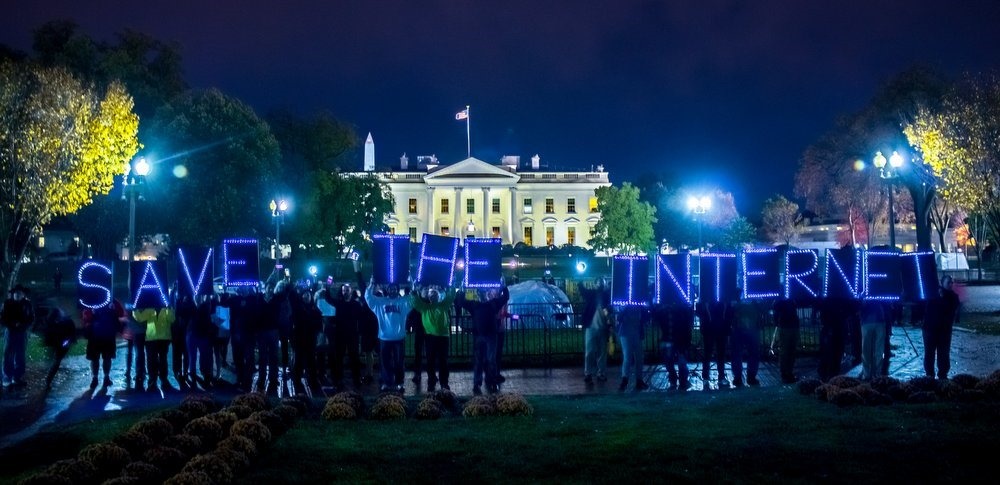TRAI’s Newest Consultation Paper On Net Neutrality Is More ‘India Centric’; Focuses On Traffic Management & Transparency

After TRAI banned Free Basic by Facebook last year, and literally saved the freedom of Internet in India, talks of newer models of ‘regulated’ Internet and throttled ‘speeds’ surfaced, sometimes in the form of ‘toll-free’ model of distributing bandwidths and sometimes in the form ‘paid Internet access’, in collaboration with ISPs, Govt. and local entrepreneurs.
In order to introduce a much-needed clarity on the issue of net neutrality, and to provide a broader definition, protocols and regulations for the same, TRAI has just floated a fresh consultation paper on Net Neutrality (dated January 4th, 2017).
On a broader look at the consultation paper, it is clear one thing: This is the most comprehensive consultation paper ever floated by TRAI on this sensitive issue, and there are three main reasons for that: The pointers mentioned in the paper are more India-centric, although it derives much knowledge and experience from what other countries are doing in this space; intense focus on transparency has been provided in the questions asked and technical roadblocks such as traffic management has been openly discussed.
TRAI has certainly done its homework when it comes to the very concept of net neutrality, and the consultation paper clearly proves this fact.
Some of the major pointers discussed in this newest consultation paper:
Contents
a) The Definition of Net Neutrality
TRAI has mentioned the definition of Net Neutrality as defined by academic Tim Wu who stated that Net Neutrality was ‘best defined as a network design principle. The idea is that a maximally useful public information network aspires to treat all content, sites and platforms equally’. This is the same definition and concept which TRAI uses regularly while defining net neutrality in this consultation paper.
b) Indian Context
TRAI says, “there are variations in the requirements of one country to another, including in terms of their level of development, adoption of the Internet, state of content business and the regulatory, licensing and legal framework within which they operate.”
This showcases the fact that the consultation paper has been designed in a way in which context of India, and India centric needs are not ignored while finalizing the regulations for Net Neutrality. Concepts such as regulatory structure prevalent in India, licensing regime, penetration of Internet and Broadband in India etc have been specifically mentioned so as to localize the issue as much as possible.
Thus, unlike in previous consultation papers, TRAI is now inclined towards coming up with solutions which Indians resonate with, keeping in mind Indian rules and regulations and sentiments.
c) Transparency Aspect
Most probably for the first time, TRAI has laid special emphasis on the transparency factor, when it comes to deciding regulations for net neutrality in India.
TRAI has made their intentions clear, as they said, “ Transparency is one of the key enabling factors towards ensuring adherence to the nondiscrimination principles set forth in any NN framework.”
As per TRAI, disclosure of relevant information by TSPs will empower the end-user to be more specific, more vigil while choosing the best services.
Aspects which would be now covered under transparency, and would be made mandatory to disclose are: price information and commercial terms, performance metrics and characteristics being clearly defined by the TSPs, and traffic management techniques being deployed by them, when to comes to internet services.
d) Traffic Management Techniques
TRAI has again set a new benchmark for transparency, as they have now dedicated an entire section of the consultation paper to the techniques of traffic management used by TSPs.
TRAI said, “Service providers generally use a range of techniques to manage the safety, security and efficiency of their networks. On one hand, it is important to ensure that such techniques should not be used in a discriminatory manner. On the other, any restrictions imposed on TSPs should not interfere with their ability to manage their networks in a reasonable and fair manner.”
Several reasons have been mentioned by TRAI, on their decision to include ‘reasonable’ traffic management practices (TMP) in the consultation paper: Issue of traffic congestion, Prioritization of latency-sensitive traffic (example VoIP calls), Network security and integrity, legal requirements, emergency services and more.
Some of the questions which are asked by TRAI in this consultation paper include:
Question: How should “Internet traffic” and providers of “Internet services” be understood in the NN context?
(a) Should certain types of specialized services, enterprise solutions, Internet of Things, etc be excluded from its scope? How should such terms be defined?
(b) How should services provided by content delivery networks and direct interconnection arrangements be treated?
Question: In the Indian context, which of the following regulatory approaches would be preferable:
(a) Defining what constitutes reasonable TMPs (the broad approach), or
(b) Identifying a negative list of non-reasonable TMPs (the narrow approach).
Question: Should the following be treated as exceptions to any regulation on TMPs?
(a) Emergency situations and services;
(b) Restrictions on unlawful content;
(c) Maintaining security and integrity of the network;
(d) Services that may be notified in public interest by the Government/Authority, based on certain criteria; or
(e) Any other services.
Here is the consultation paper, which details are the questions being asked by TRAI.
All Indian citizens and stakeholders are requested to send in their replies latest by 15th of February 2017 and counter-comments by 28th of February 2017 to Shri Asit Kadayan, Advisor (QoS) TRAI on the email address [email protected].
Comments and counter-comments will be posted on TRAI is website www.trai.gov.in. For any clarification/information, Advisor (QoS) may be contacted at Tel. No.+91-11-23230404, Fax: +91-11-23213036.
